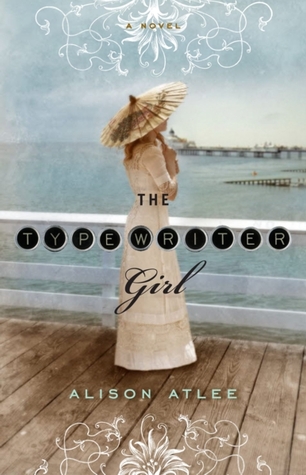Tell us the story behind the story. How did THE TYPEWRITER GIRL come to be?
Setting was everything for this story. I’d found a vintage postcard of an English seaside town, and the card featured a switchback railway, a forerunner of the modern roller coaster. When I saw it, I knew I wanted to set a story there. I needed a character to build the roller coaster, and another one to shake up the town where it is built, and that’s how John and Betsey came to be.
I’d also recently read Pygmalion (later the basis for My Fair Lady), so when I was picking names, Liza/Elizabeth was in mind, as well as two details about that character: one, that she owned a birdcage, “its occupant long dead,” which I found such a poignant detail for George Bernard Shaw to mention; two, that she was always insisting, “I’m a good girl, I am!” I named Betsey, gave her a living bird, and wondered, what if she wasn’t a good girl?
What was the most challenging aspect of writing THE TYPEWRITER GIRL?
This isn’t the most challenging, but I’m always so glad when readers appreciate the epigraphs at the beginning of each chapter because putting them together nearly drove me nuts. They come from an actual 1890’s typing manual. I made a photocopy and started cutting out sentences and passages I liked or thought would work with certain scenes. Eventually, I had a wall covered in scraps of paper and sticky notes as I pulled everything together.
That was for submission. Revisions after the book sold meant scenes added and deleted, and I had to do some of it all over again. Luckily, I saved those scraps!
What is the message you want readers to take away from your book?
I would be thrilled for a reader to come away from The Typewriter Girl wondering, “Can I give my dreams a little more growing space?”
Betsey begins the story having accomplished quite a bit for a woman of her class and education, and she thinks if she can just hold on, maintain that much, it will be good enough. She’s afraid to hope for more. One of the pleasures of writing this story was discovering all the ways her dreams could get bigger, go wilder, and I hope that resonates with readers.
Describe your writing schedule. Do you outline? Any habits?
I have a direction in mind, and draft from that. When I get stuck, I go to a “synopsis” where I re-tell the story to myself, ask questions, begin a great many sentences with the word “maybe.” That usually gets me through to the next thing, but it’s such a mess! Once I took my laptop into the Apple Store for some help, and when that synopsis file came up on the screen, I nearly leapt up onto the table to hide it from the Apple rep. I think I might have been less embarrassed if it had been naughty photos!
What books are on your nightstand? What are you currently reading?
Thank you VERY much for the “s” on “books”–I keep them stashed everywhere, so I’m always in-progress on more than one. On the nightstand right now is Where the Light Falls by Katherine Keenum. I have an issue of Lapham’s Quarterly on my kitchen counter, and the audio of The Night Circus for car rides. The Secret Countess by Eva Ibbotson is on my phone for waiting rooms and lines, and then there’s the stack for research, including Hallucinations by Oliver Sacks.
Which authors inspire you?
Today I’ll pick Simon Winchester for his curiosity and use of the English language–rich, unexpected, and impeccable.
What have you learned from this experience?
One of my elementary school teachers had a poster of Garfield the cat and Odie the dog up in a tree with the caption, “It’s amazing what one can accomplish when one doesn’t know what one can’t do.”
I went into writing for publication pretty blindly, and for me, that worked. If I’d known everything ahead of time, I would not have believed I could do it.
What is your advice for aspiring writers?
So much to say here, but I might start with what I said above–don’t worry about the industry until you have to. Worry about craft, worry about your characters, worry about finishing the story. All the publishing stuff doesn’t matter until you’ve done your time on that part.
Also, by “worry,” I mean learn/work/focus.
What is the best piece of advice you have ever been given?
Getting enough sleep makes all the difference.
What are you working on now?
The next couple of books, of course! And reconfiguring my writing space.
Thanks, Alison, for stopping by Bookfinds. You are an inspiring author and have written a gorgeous novel! We look forward to all of your future work! Read more about Alison on her website.


Where is your review policy?
How do I send you titles for review consideration?